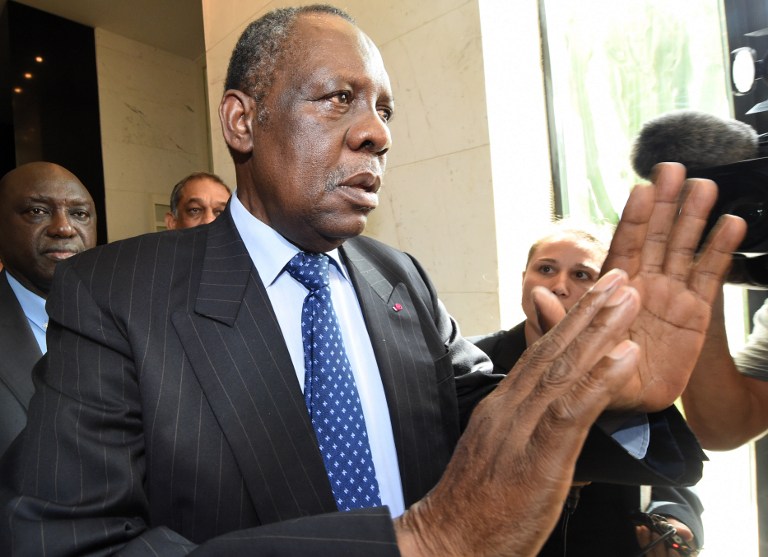There will be no change to the dates for next year’s African Cup of Nations despite the Ebola outbreak, the Confederation of African Football (CAF) said Monday. The CAF also said host country Morocco has until Saturday to agree to the schedule or lose the tournament.
The CAF maintained its position on Africa’s top football tournament after a meeting of its executive committee over the weekend, followed by additional meetings with Moroccan officials on Monday. These Moroccan officials, however, want the cup postponed. The African Cup of Nations is currently scheduled to be held on Jan. 17-Feb. 8.
CAF has kept the qualifying competition for the African Cup going by banning all games in Guinea and Sierra Leone, and ordering their teams to play “home” games in neutral countries. Liberia, meanwhile, is not involved in the final qualifiers.
Reasons why the Cup should move forward:

Issa Hayatou, president of the Confederation of African Football (CAF) leaves his hotel on November 3, 2014 in Rabat, ahead of his meeting to discuss Rabat’s request to postpone hosting the 2015 Africa Cup of Nations due to the Ebola epidemic.
The reasons CAF listed for why the cup should go ahead in January and February included:
- The number of traveling fans would be low,
- Morocco has no reported Ebola cases, and
- The dates can’t be moved because they fit in with FIFA’s calendar.
The CAF also cited its commitments to its “commercial partners,” with the African Cup of Nations, the organization’s most important and valuable tournament.
What comes next if Morocco drops out:
The CAF said Morocco’s football federation should now “clarify its final position” on the tournament by Saturday. Meanwhile, the confederation will talk to other countries willing to host if Morocco doesn’t agree to hold the tournament.
It’s still unclear whether another African nation would be willing to host should Morocco drop out.
Possible stand-in hosts included South Africa, Egypt, and Sudan, but all these nations have said they won’t stage the tournament. Ghana and Nigeria are believed to be considering if they want to act as short-notice hosts.
Why Morocco’s so worried:
Last month, Morocco asked for the 16-team competition to be delayed because of the threat of fans arriving in numbers from Ebola-affected countries. The virus has killed about 5,000 people in West Africa in the worst recorded outbreak in history. The deaths have almost all occurred in the three worst-affected countries: Guinea, Liberia, and Sierra Leone.
This story was compiled with information from the Associated Press.
CLICK HERE FOR MORE CCTV AMERICA COVERAGE ON EBOLA
For more on the Ebola epidemic, CCTV America is joined by Doctor Yangzhong Huang. He’s a Senior Fellow for Global Health, at the Council on Foreign Relations.

 CGTN America
CGTN America In this Oct. 9, 2014 file photo, a Moroccan health worker uses a thermometer to screen a passenger at the arrivals hall of the Mohammed V airport in Casablanca. (AP Photo/The Canadian Press, Abdeljalil Bounhar)
In this Oct. 9, 2014 file photo, a Moroccan health worker uses a thermometer to screen a passenger at the arrivals hall of the Mohammed V airport in Casablanca. (AP Photo/The Canadian Press, Abdeljalil Bounhar)
